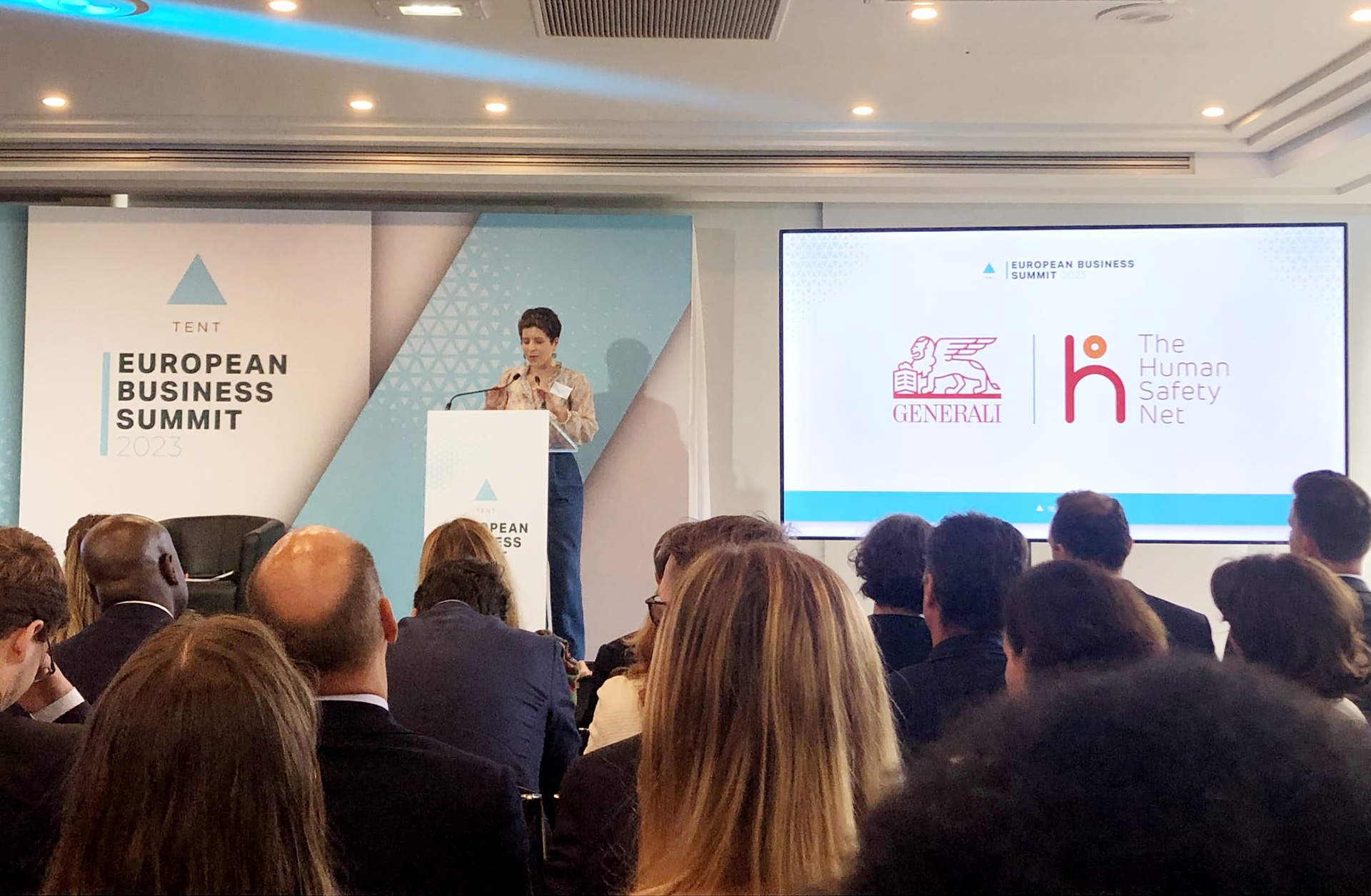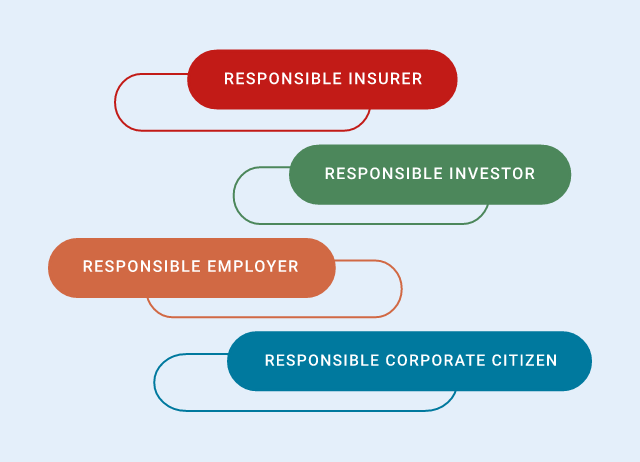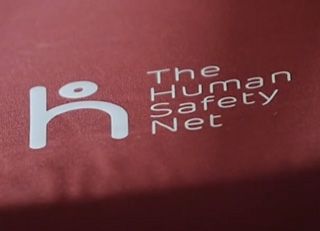28 June 2023
Generali & The Human Safety Net standing with refugees
According to UNHCR, in 2022 more than 100 million people were displaced by conflict, persecution, and environmental disasters. To mark World Refugee Day, Generali and The Human Safety Net reaffirm their commitment to supporting refugee integration through work and entrepreneurship
According to the report Global Trends 2022, published by the United Nations High Commissioner for Refugees (UNHCR), by the end of 2022, a total of 108.4 million people worldwide were forcibly displaced due to conflict, violence, and natural disasters. This is an increase of 19 million people compared to the end of 2021, and is the largest surge ever recorded on an annual basis.
The war in Ukraine and increased climate-related disasters
The main reason for the drastic increase is the war in Ukraine, as well as other conflicts in the rest of the world, and climate-related disasters. According to the report, the trend is set to grow, as the outbreak of the conflict in Sudan in April this year leading to even further evacuations, pushing the global total to about 110 million as of last May.
Ukraine: from 27,300 to 5.7 million refugees in just one year
Of the total number of globally displaced people in 2022, 35.3 million were refugees who crossed an international border to find better security conditions, while a larger share - 58%, representing 62.5 million people - were internally displaced.
The war in Ukraine was the leading cause of displacement in 2022. The number of refugees from the country rose from 27,300 at the end of 2021 to 5.7 million at the end of 2022, representing the fastest outflow of refugees anywhere in the world since World War II.
Disasters triggered 32.6 million new internally displaced people in 2022, the highest figure in a decade
The report also highlights the number of so-called “environmentally displaced people”, who are forced to flee their home country due to the effects of climate change, such as environmental disasters, desertification, and famine. The disasters, according to UNHCR, led to 32.6 million new internally displaced people (IDPs) in 2022, which is the highest figure in ten years and 41% higher than the annual average over the past decade.
World Refugee Day
Each year on 20 June, World Refugee Day celebrates the strength and courage of people who have been forced to flee their home country to escape conflict or persecution. Convened by the United Nations to focus global attention on the condition of refugees, it was held globally for the first time on 20 June 2001, commemorating the 50th anniversary of the 1951 Geneva Convention relating to the Status of Refugees.
Generali e The Human Safety Net standing with refugees
Through The Human Safety Net Foundation, Generali carries out several initiatives to support refugees. From inclusion activities in host countries to supporting refugee families from Ukraine, projects for long-term support are activated in order to promote inclusion through work.
Generali’s commitment to provide training to over 5,000 refugees
Generali pledged to provide training opportunities through The Human Safety Net to more than 5,000 refugees - including Ukrainian refugee women - over the next three years at the TENT European Business Summit, which took place in Paris on 19 June. The goal is to provide participants with concrete job placement opportunities. In addition, Generali and The Human Safety Net will also continue to promote refugee integration through work and entrepreneurship by supporting them in starting their own businesses. Since 2019, the initiative has already seen the creation of 400 businesses and 500 jobs.

Project “Welcome”, Generali awarded by UNHCR for refugee integration
In Italy, the Group was recognised by UNHCR in the framework of the “Welcome. Working for refugee integration” project, for its commitment to promoting the work integration of beneficiaries of international protection. An example is the story of Ilona, from the Ukrainian region of Lugansk, who is now working in the Real Estate Business Intelligence & Analytics department of Generali Real Estate.
Germany: the partnership with JOBLINGE for refugee training is underway
The aim of the new collaboration between The Human Safety Net and JOBLINGE is to offer refugees in Germany better access to training and employment.
To this end, The Human Safety Net has also taken part in a fund, also open to other funding partners, to train 400 refugees over the next two years. The funding is outcome-based, meaning it occurs when one of JOBLINGE's locations in the country demonstrates that a refugee has actually been placed in an apprenticeship. JOBLINGE's refugee inclusion rate is currently 72%.
France: mentoring for refugee women and training as data analyst
In France, The Human Safety Net has announced the launch of a mentoring programme dedicated to refugee women, who are often those who find it harder to find a job. Generali volunteers can also take part, supporting them in language learning and writing of the curriculum.
Since 2021, as part of a programme launched by partner NGO Each One together with OpenClassroom, Generali France has so far hired 10 students with refugee status to offer them training as data analysts, with excellent results in terms of integration in the company.
Since 2017, the refugee programme in France has been supporting beneficiaries of international protection who want to become entrepreneurs in incubators in Paris, Montreuil, Saint-Denis and Strasbourg with the support of partner NGOs SINGA and La Ruche, and runs training activities with the partner organization Each One.
Switzerland: facilitating employment with the Access project
Despite their qualifications, many people with a refugee or migrant background have trouble finding a job in Switzerland. In addition to the project dedicated to start-ups created and managed by refugees, active since 2019, there is now also the Access project, focused on employability, which aims to support highly skilled refugees and migrants in their professional, social, and economic integration in Switzerland.
Find more refugee stories here


